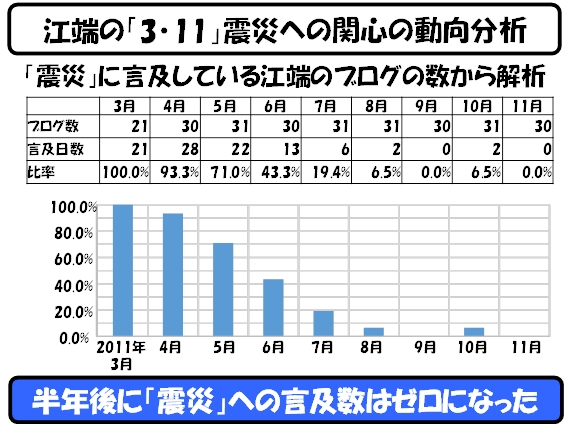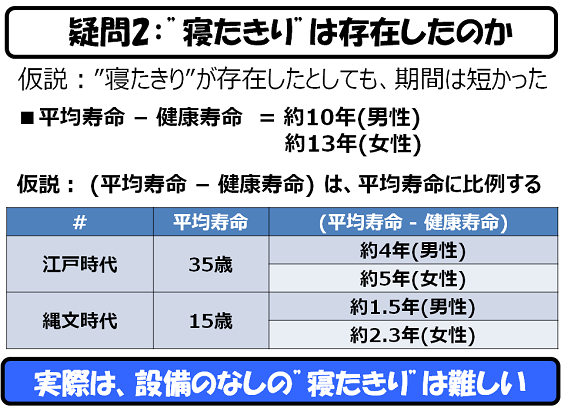2024-01-28 The plan to make "free love" "indefinite" will surely fail -- "surely." [長年日記]
Six months" is the conclusion I have drawn from my calculations and rule of thumb.
【新着記事】「江バ電」で人身事故をシミュレーションしてみた https://t.co/Qxr14X4COB pic.twitter.com/oJlAOsppaG
? EE Times Japan編集部 (@eetimes_jp) June 29, 2016
You will find the following statement on page 5 of my column above.
- I wanted to know quantitatively how "this I" had forgotten about the 3/11 disaster (the Great East Japan)
- I did the following survey using my blog, which I have kept track of without missing a single day for the past years.

-----
高齢者介護 ~医療の進歩の代償なのかhttps://t.co/R1DV5OshVJ pic.twitter.com/IiQbaWM0tR
? EE Times Japan編集部 (@eetimes_jp) July 30, 2018
You will find the following statement on page 6 of my column above.
- One hypothesis derived from this is that "bedridden" was only for about six months before the Edo period.
- With the care technology available at the time, it would have been impossible to keep a person "bedridden" for three or ten years.

-----
As for support for Ukraine, it is a stark fact that countries are "tired of supporting" Ukraine.
We are not strong enough to withstand support without a set deadline.
-----
Conclusion:
(1) "There is an upper limit to the stock of unconditional love (free love) for others."
(2) "Its stock generally runs out in six months."
(3) "The maximum period during which support for disaster-affected areas and care for bedridden people can continue "free of charge" is "six months.
Based on this reality, we must plan to support the affected population and care for older people.
The plan to make "free love" "indefinite" will surely fail -- "surely."